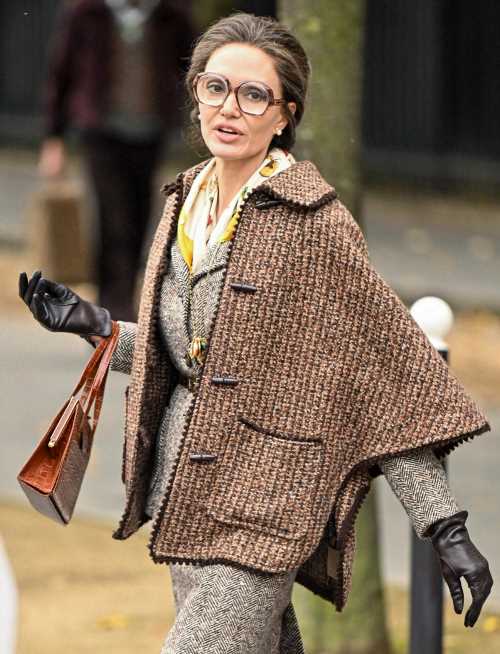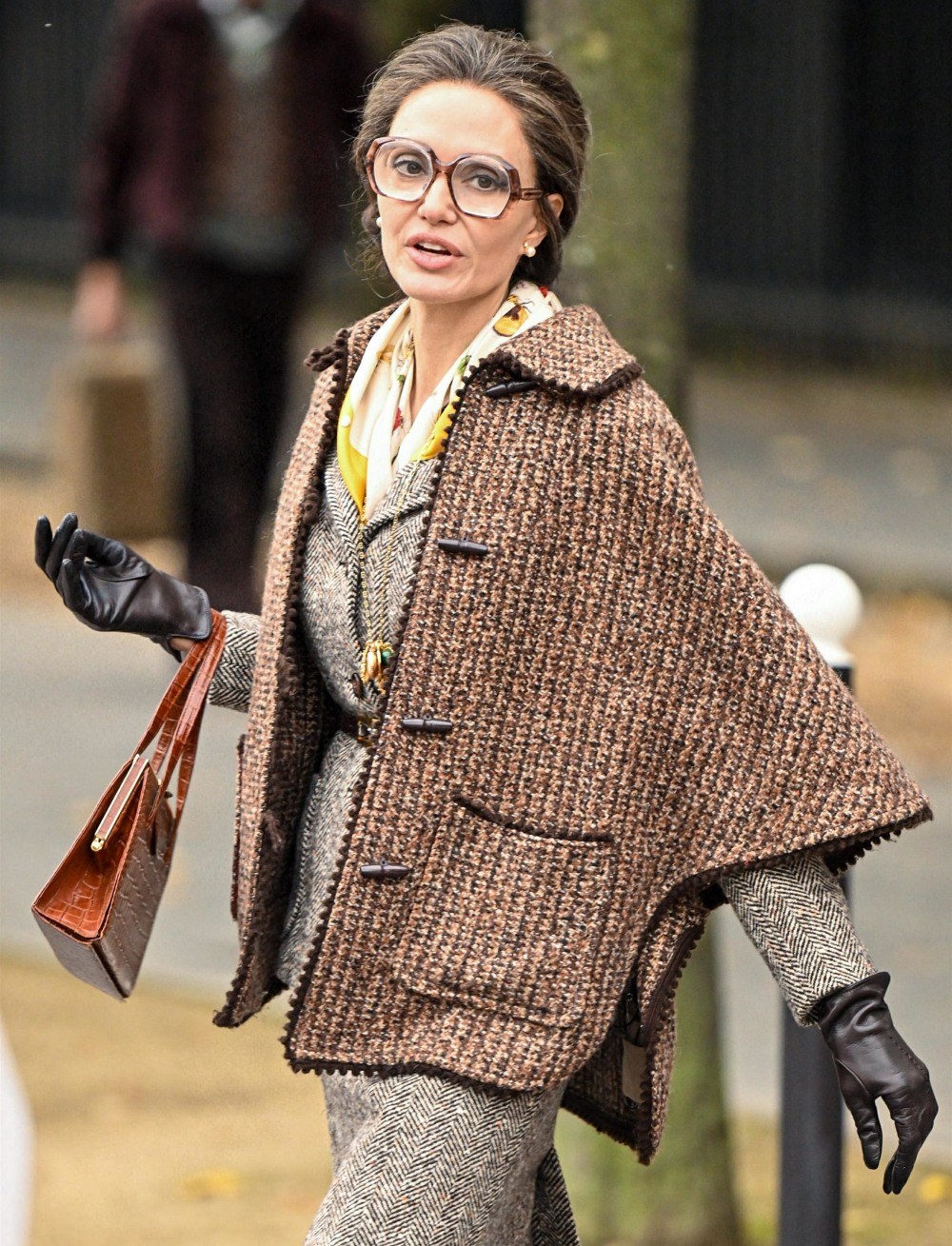Angelina Jolie covers the latest issue of WSJ. Magazine. It’s a surprising piece, written by Elisa Lipsky-Karasz, which largely ignores the tabloid version of Jolie and barely touches the divorce from Brad Pitt. Jolie spent years healing with her children after the Pitt marriage went t-ts up in 2016, but slowly and steadily, she’s been rebuilding her life. She’s back to taking acting roles with some regularity. She’s directed another movie (Without Blood), and she’s filming the Maria Callas bio-pic. She also confirms, in this piece, that she’s signed on to a third Maleficent movie (no additional details). While she’s still being sued by and countersuing Brad Pitt over the sale of her half of Miraval, she’s already using the money from the sale to start Atelier Jolie. Which seems to be the main point of this WSJ. piece – Jolie is hyping, in her hilariously awkward way, her new thing, this fashion collective she’s dreamt up. You can read the full piece here. Some highlights:
Playing Maria Callas: “I’m a little terrified to do it. I’m the one who whispers ‘Happy Birthday’ at the party. My body reacts very strongly to stress. My blood sugar goes up and down. I suddenly had Bell’s palsy six months before my divorce.”
The past seven years, where she was mostly at home in LA: “We had to heal. There are things we needed to heal from.”
On Hollywood today: “I wouldn’t be an actress today,” says Jolie. Maybe theater, she caveats, but not Hollywood. “When I was starting out, it wasn’t as much of an expectation to be as public, to share so much.”
Winning an Oscar at 24: “Because I grew up around Hollywood, I was never very impressed with it. I never bought into it as significant or important.”
Her closest friends are refugees: “There’s a reason people who have been through hardship are also much more honest and much more connected, and I am more relaxed with them. Why do I like spending time with people who’ve survived and are refugees? They’ve confronted so much in life that it brings forward not just strength, but humanity. I realized my closest friends are refugees. Maybe four out of six of the women that I am close to are from war and conflict.”
No social life: Meanwhile, in L.A., “I don’t really have…a social life,” says Jolie. She says she isn’t currently dating.
Her children are the people closest to her: “They are the closest people to me and my life, and they’re my close friends. We’re seven very different people, which is our strength.”
The public gave her a career: “They’ve also chosen how they want you. Since I was young, people liked the part of me that’s pretty tough and maybe a bit wild—that’s the part that I think people enjoy. I’m not the one [who] you want to hear about my pain or my sadness. You know, that’s not entertaining.”
Jolie plans to eventually leave L.A. “It’s part of what happened after my divorce. I lost the ability to live and travel as freely. I will move when I can,” she says, and spend more time at her home in Cambodia. “I grew up in quite a shallow place,. Of all the places in the world, Hollywood is not a healthy place. So you seek authenticity.”
On Atelier Jolie: She also seems to have an almost compulsive need to work. “I can’t stop. I always think there’s like a fight coming.” Jolie says people around her laughed when she told them about her new venture: “You, in fashion? No.” “I’ve never been to a fashion show or Met Ball my entire life.”
She has so many ideas for Atelier Jolie, but she knows it will run at a loss: “I’ll probably lose money, maybe even for a while,” says Jolie. The 6,600-square-foot space was advertised at $60,000 per month for a minimum 10-year lease; a representative for the brand declined to share the terms of the lease but said Jolie is paying less and isn’t committed to 10 years. “If I can eventually put into practice some things that I think are improvements and I just break even, that’s a huge victory.”
She consulted human rights lawyers before consulting designers: “What would be an ethical business? We are trying to reverse-engineer it a little bit. I don’t know the answers. Can we avoid doing real damage—not only to the earth, but the garment workers? … Is it possible that I could go somewhere and enjoy making clothes, enjoy wearing clothes and not hurt anybody? And actually maybe treat people well?”
Her style: “My daughter jokes that I wear too many trench coats. It’s just like a hiding thing.”
She’s comfortable with her body now: “It’s like I see my scars and my things, and I feel like I’ve lived. And I’m having these big experiences, and I have this map of this complex body that’s changed over time. You and I both know that a woman with a full life is very sexy.”
[From WSJ. Magazine]
I want her to get back with Jonny Lee Miller so badly, my god. I feel like they would be so good together now, at this age. I know that’s far from the point of this interview, but I honestly feel like she needs to let one good man in for a weekend and build from there. As for Atelier Jolie, WSJ. Mag lists all of the smaller projects she’s building within the Basquiat studio, not just full fashion design, but a cafe and sewing lessons and classes that people can take. It sounds really cool, like a modern fashion-based commune. She’s also already on her way out of LA – she’s reportedly apartment-hunting in New York as we speak, and now that the kids are older, I would imagine she’ll be traveling a lot more.
https://www.instagram.com/p/C0eRuLuMJQJ/
Photos courtesy of Backgrid.
Source: Read Full Article

